This International Women’s Day, we are highlighting videos, podcasts and blogs that represent the views of female public media leaders. These views transcend today and demonstrate that women have long led the debate about public media, where it has been, where it is, and where its future lies.
Such leaders have played a particularly critical role in recent years as public media outlets face growing press freedom pressures and, more recently, the challenges of a global pandemic.
But these voices are not just an important part of the public media debate; they are absolutely essential as part of public media’s core mandates for diversity, pluralism, universal accessibility and to represent the breadth of a nation’s population.
Fortunately, many public media organisations are taking the lead. For instance, outlets across Europe are becoming leaders in gender balanced workplaces. More and more, public media organisations are recognising the integral role of a gender balanced workforce – both behind the cameras and microphones, and in front of them. Public broadcasters like the Australian Broadcasting Corporation (ABC) and the British Broadcasting Corporation (BBC) both have 50:50 Projects, which strive for greater female representation within their organisations.
But there’s still a long way to go. While there are many brilliant female minds in leadership roles – as this report highlights – many public media organisations remain far behind in terms of gender balance, particularly at senior levels of management.
This International Women’s Day we call on all public media organisations to redouble their efforts to achieve gender balance and representation in the workplace and on-air. We also reiterate our commitment to amplify female voices in our work to support and advocate public media worldwide.
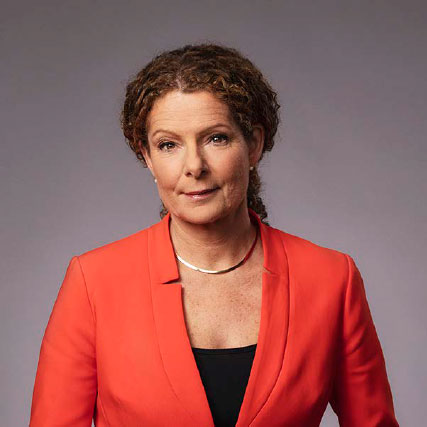
Cilla Benkö
Director General and CEO, Swedish Radio
“It may not be a coincidence that the Swedish audience today listens less to streamed music and more to Swedish Radio. With us are the people, the voices, the debate and the dialogue – and again someone to hold hands. Someone who helps to sift through all the facts and who creates a greater understanding.”
READ MORE: An essential and important role in difficult times
Having worked for Swedish Radio for nearly 30 years, Cilla Benkö has long been an advocate for supporting and strengthening public media in Sweden. Among her many notable accomplishments, she was awarded the Pontus Schultz prize in 2016 for her successful efforts to create a greater gender equal organisation and was recently appointed for her fifth term as an EBU Board Member.
In the last year alone, Cilla has argued the need for strong, independent and impartial media at a time when media markets around the world are increasingly becoming more polarised, and she has actively called for greater safety for journalists. In this Insight report, Cilla wrote about the vital role that Swedish Radio played at the start of the COVID-19 pandemic in reaching the public with news and information, the response that the public broadcaster had received from audiences and its ability to remain resilient during a time of crisis.
In her latest blog for Swedish Radio, Cilla writes how journalism and society cannot afford to be silent in the face of violence, hateful rhetoric and sexualised threats towards women journalists, both on- and offline. She also calls for a review of legislation to better protect women journalists and for greater collaboration between media workers, media companies, police and citizens in calling out threats and hatred.
Ita Buttrose AC, OBE
ABC Chair
“The ABC, funded by all of us, regardless of our creed – race, age, political beliefs – is us. It’s the way we build cross-cultural understanding, the way we help each other in times of need. It’s who we are collectively. Why would anyone want to diminish that and make us less than who we are?”
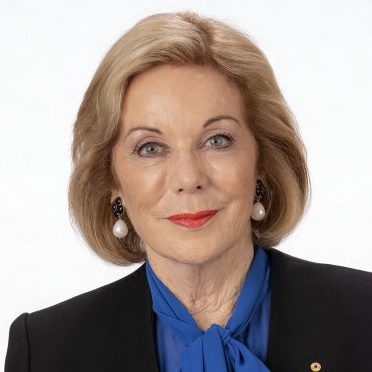
READ MORE: What would Australia look like without the ABC?
From budget cuts and attempts of political interference, to anti-public media rhetoric, the Australian Broadcasting Corporation (ABC) has been under immense pressure in recent years. Since she was appointed as the ABC Chair in 2019 – the second woman to hold this position – Ita Buttrose has played an important role in supporting the public broadcaster against growing intimidation. With a media career spanning decades, Ita is considered to have set high standards for journalism in the country. She actively speaks out about the ABC’s contributions to Australian society and democracy, its role in bringing Australians together, and its life-saving role in times of crises, such as during the 2019-2020 bushfire season.
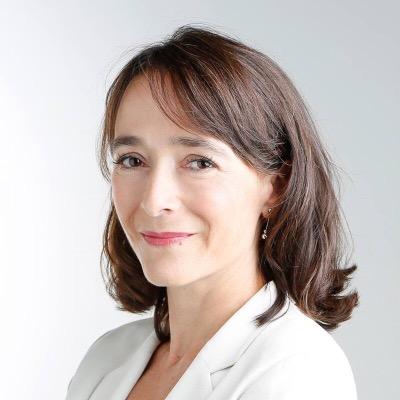
Delphine Ernotte Cunci
President and CEO, France Télévisions, Member of the Global Task Force and President of the EBU
“Our audiences claim to be better represented, in terms of parity, skin color, disability, geographic and social origin. The distortion between reality and its representation on television is too great. We are therefore going to assess the representation on the air in order to set ourselves goals for 2021… [Diversity] will be the common thread of my mandate.”
READ MORE: Delphine Ernotte: “Diversity will be the common thread of my mandate” at France Télévisions (Le Monde)
Delphine Ernotte Cunci has been CEO of France Télévisions since 2015 and was re-elected for a second five-year term last year, the first time that the French media regulator, Le Conseil supérieur de l’audiovisuel (CSA), has renewed the mandate of an incumbent President. She is also the first woman to take on this role. She has often been outspoken about the need for better representation within France Télévisions and for her second term, Cunci is determined to build on the progress that has been made to further promote gender equality and social inclusion. In late 2019, she introduced quotas to increase the number of female directors and creators across France Télévisions.
Delphine is also a member of the Global Task Force for Public Media and was appointed President of the EBU last year, having previously held the position as Vice-President. In her first public statement, she said: “The health crisis has underlined the major democratic role played by public service media in accessing free and trusted information”. She added, “… I am both proud and happy for all France Télévisions staff, with whom I share the honour of becoming the EBU’s first female president.”
Karen Donders
Director of Public Value
“Scientific research has convincingly demonstrated for several decades how important public broadcasting is for people, society and the media market. It is a real honor and at the same time a great challenge to participate in practice, and no longer from within the university, on a process that should ensure that the VRT still has a place in the heart of the Netherlands in 2030 and even in 2050. every Fleming has.”
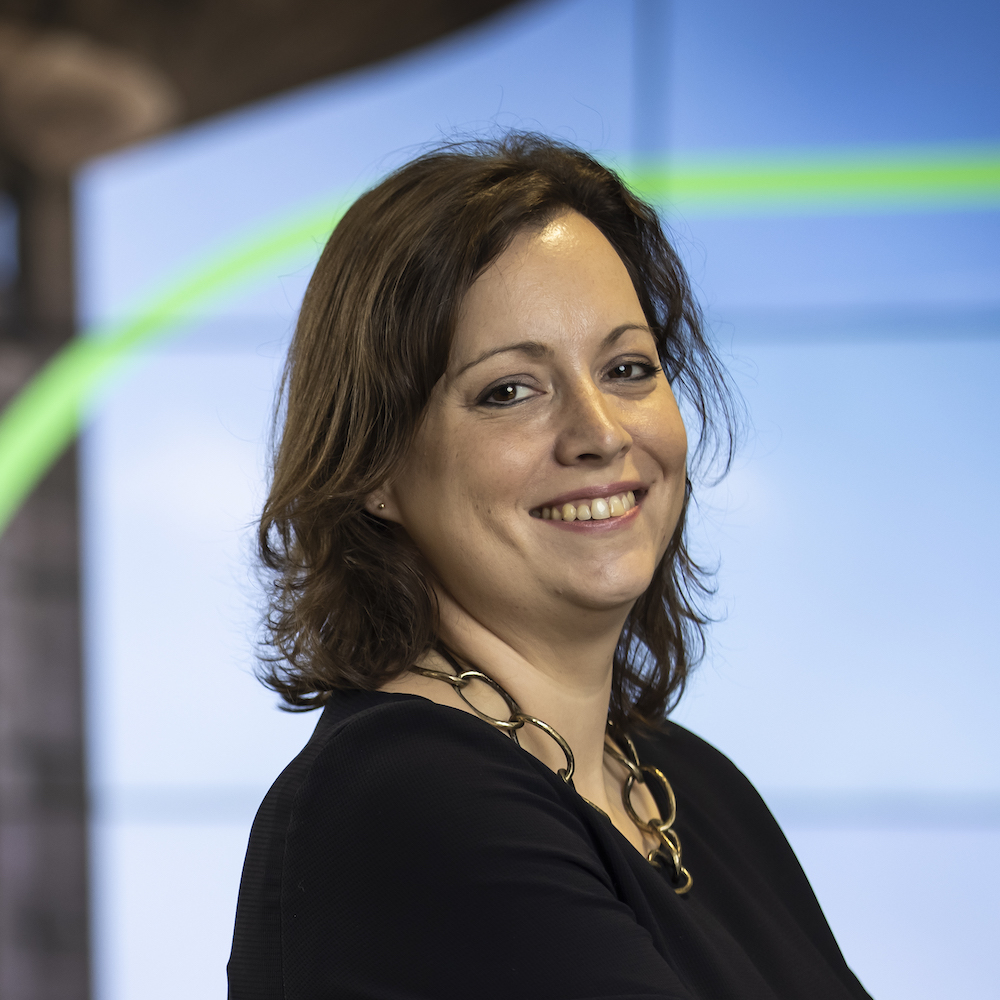
READ MORE: Karen Donders becomes director of Public Assignment at the VRT (VRT News)
As Professor of Communication Sciences at Vrije Universiteit Brussel, Karen has taught courses related to journalism and media policy and economics. But Karen has recently taken on a new role at Belgium’s Flemish public broadcaster, VRT, as the new Director of Public Value. Having already provided assistance in VRT’s previous management arrangements, this new role will further enable her to put her academic expertise into practice and advise on how best VRT can continue to provide value to the Flemish society.
Karen also featured on an episode of ABC Radio National’s ‘Future Tense’ podcast, alongside PMA, about the challenges facing public media worldwide.
LISTEN: The ongoing fight to save public broadcasting (‘Future Tense’, ABC Radio National)
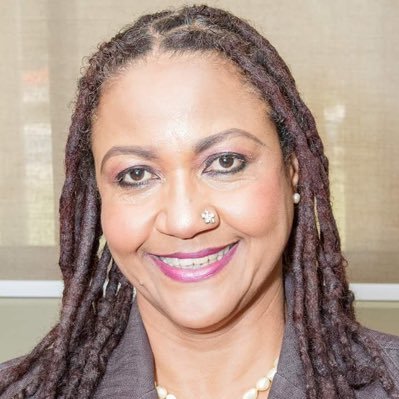
Umbi Karuaihe-Upi
Chief Commercial Officer, Namibian Broadcasting Corporation (NBC)
“I joined NBC 31 years ago as a radio and television journalist. It was exactly at the time Namibia was getting its independence from South Africa. Over these three decades I have witnessed an amazing transformation from a South African propaganda organisation to a democratic public broadcaster.
Namibia’s public broadcaster continues to navigate the challenges of representing a diverse society in a large, sparsely populated country. With three TV stations and 11 radio stations broadcasting in 10 languages, NBC has been hailed for catering to minority audiences and languages such as German, Setswana and San.
NBC has also made significant strides in gender equality and, compared to other broadcasters regionally, is one of the few with a Gender Policy. This helps to guide the broadcaster regarding Gender-Balanced recruitment panels and when interviewing news sources.
NBC’s Chief Commercial Officer, Umbi Karuaihe-Upi told PMA more:
“I joined NBC 31 years ago as a radio and television journalist. It was exactly at the time Namibia was getting its independence from South Africa. Over these three decades I have witnessed an amazing transformation from a South African propaganda organisation to a democratic public broadcaster.
At the time the entire Top Management consisted mainly of white males. When I joined I was the only black female journalist. I found two black sport reporters.
However today the scene has changed tremendously. Our Top Management consists of four women and two males, all with around 30 years of expertise in the media industry.
Just below this level, where we have Heads of Departments, about fifty percent are occupied by women. Out of the eleven radio stations eight are headed by women.
Therefore, when you look at the nbc it takes gender mainstreaming and women empowerment very seriously. This is duplicated at most levels in the organisation.”
Public service media has become even more relevant in Namibia amidst the growth in misinformation and disinformation. NBC remains one of the most trusted media organisations in the country.
Paula Kerger
President and CEO, Public Broadcasting Service (PBS)
“I think it’s the most important of all the assets of public television if one could call it an asset — the trust the American public places in us has been paramount, and it really is also completely intertwined with how we’re funded… People contribute to their public television stations locally because they trust them. They trust them that they’re going to provide accurate information, that they’re going to play an important role in the life of their community. And so for us, it has been very much at the heart of what we’ve stayed rooted all these years … Trust is something that is very carefully earned over time and can be lost in a moment if one isn’t vigilant.”
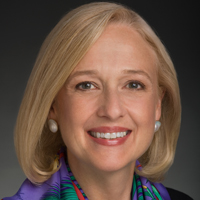
WATCH: PBS CEO Paula Kerger Talks Maintaining Public Trust in Troubled Times (Variety)
As the longest-serving CEO of PBS, Paula Kerger has remained committed to ensuring that all Americans have access to a trusted source of news, information and educational content. For Paula, what has remained the lifeblood of public television is building and maintaining audience trust – PBS and its member stations have been voted the most trusted institution for its 17th consecutive year. This trust has proved vital during the COVID-19 pandemic, through which PBS has effectively kept audiences informed, educated and entertained by rapidly introducing and adapting a slew of content throughout 2020. And while plans to celebrate PBS’s 50th anniversary were put on hold in 2020, PBS successfully launched a digital-first national storytelling project, “American Portrait”, demonstrating the value and ability of PBS to bring audiences together.
LISTEN: PBS CEO Paula Kerger On Maintaining Public Trust After 50 Years On Air (WABE)
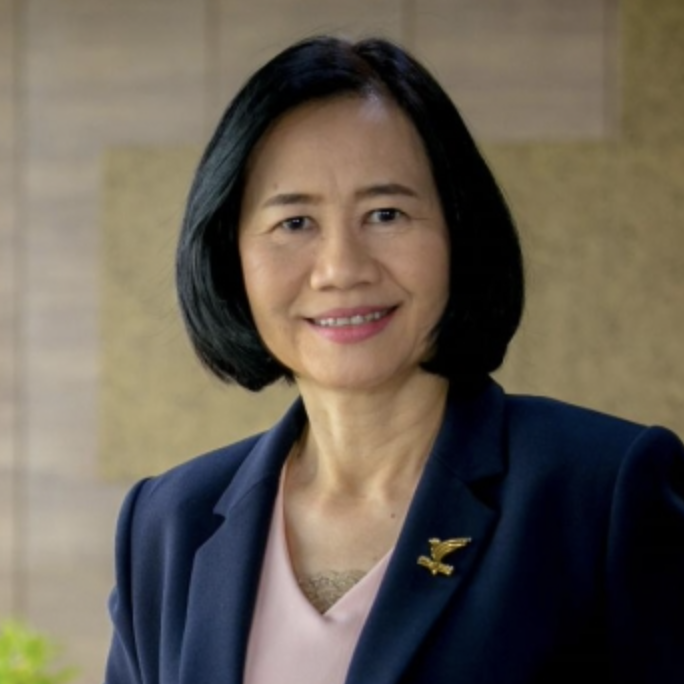
Dr. Wilasinee Phiphitkul
Director-General, Thai PBS
“Over the past 13 years, Thai PBS, as a public media player, [has aimed] to create sustainability and learn to find solutions for society. As it has been announced that “Thai PBS will be a learning space for everyone”, we received a survey from people across the country on the role of public media. It is something that people are satisfied with.”
READ MORE: Thai PBS steps into its 14th year, announces 5 focus points, and pushes the agenda to fight the Thai crisis (Thai PBS)
From Sweden to the United States, many of our female public media leaders have articulated how resilient and responsive their public media organisations have been throughout the COVID-19 crisis. Even though her term is coming to an end this year, Wilasinee has been no exception. Wilasinee has spearheaded her team at Thai PBS, one of the world’s newest public broadcasters, in committing to the key pillars of public media by encouraging citizen engagement, building audience trust and working towards greater digital innovation, as announced in the organisation’s new five point plan. Throughout the pandemic, Thai PBS has broadcast dedicated programmes with the latest COVID-19 information, ensuring that information was provided in different languages and for those with hearing impairments, and launched three online channels for real-time live updates.
Catherine Tait
President and CEO, CBC/Radio-Canada & Chair, Global Task Force for Public Media
“Around the world, public media institutions are considered the most trusted sources of news in their respective countries. But something worrisome is afoot.
As chair of the newly formed Global Task Force for Public Media, I am alarmed by how quickly the tide of public opinion can turn for institutions like mine in Canada, and others in Britain, Australia and Denmark… Imagine the alternative: a world where the interests of under-represented communities have no place, and where the voices of minorities are extinguished once and for all. That would be a world without public service media.”
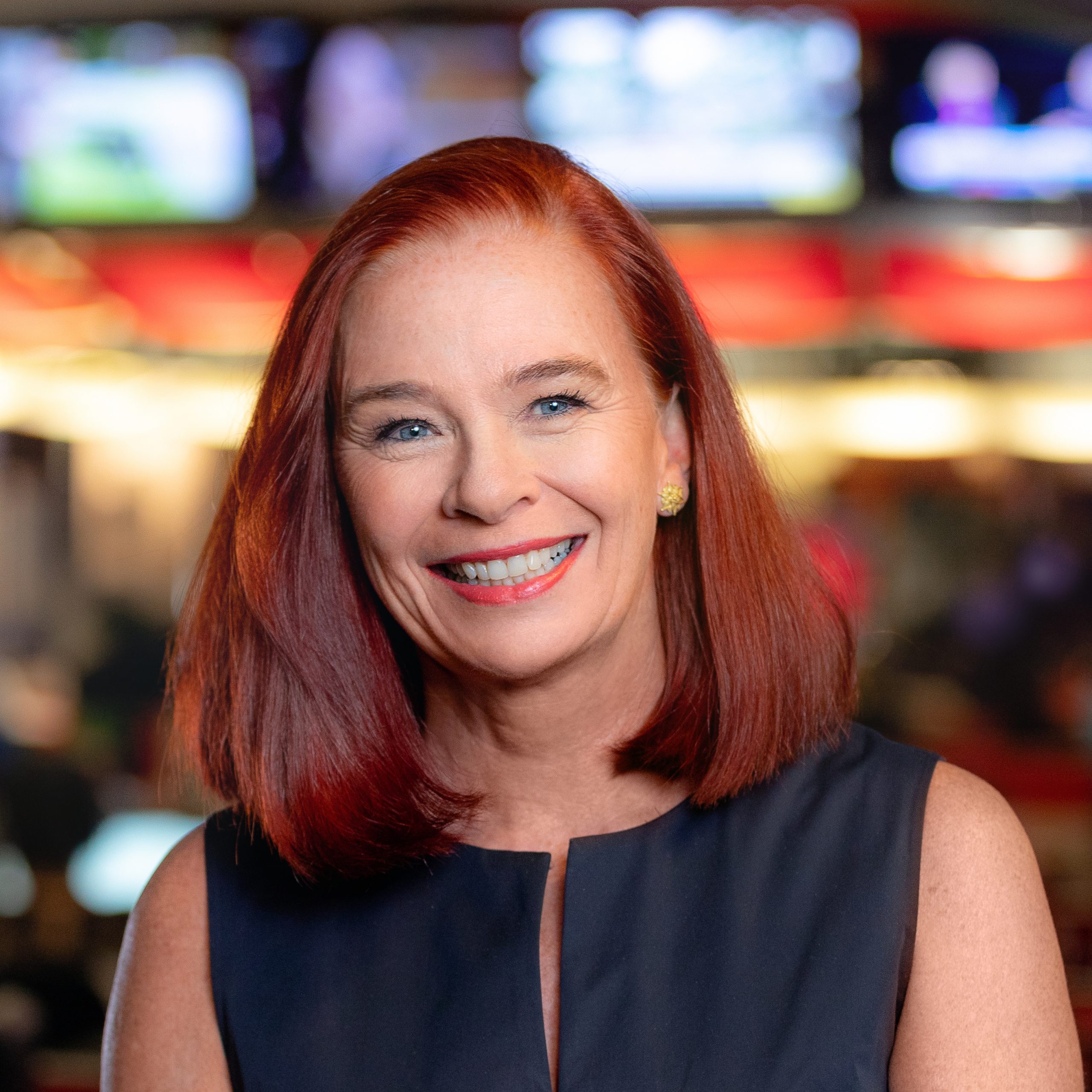
READ MORE: A world without public service media would be a darker place (The Financial Times)
In the lead up to last year’s International Women’s Day, Catherine Tait had just accepted the Women in Governance Platinum Certification in recognition of CBC/Radio-Canada’s achievements for gender parity in the workforce. As we celebrate IWD 2021, Catherine will be halfway through her five-year term as President and CEO of Canada’s national public broadcaster – the first woman to hold this position. She has been incredibly vocal about her plans to ensure that CBC/Radio-Canada delivers on its mandate to inform, educate and entertain all Canadians.
Catherine also continues to defend the values of public media worldwide and raise awareness of the critical role they play in healthy democracies, as demonstrated in an open letter published in the Financial Times last year (quoted above). In 2019, she accepted PMA’s invitation to chair the Global Task Force for Public Media, an opportunity she believes would “strengthen the great work each of us does for citizens in our countries.”
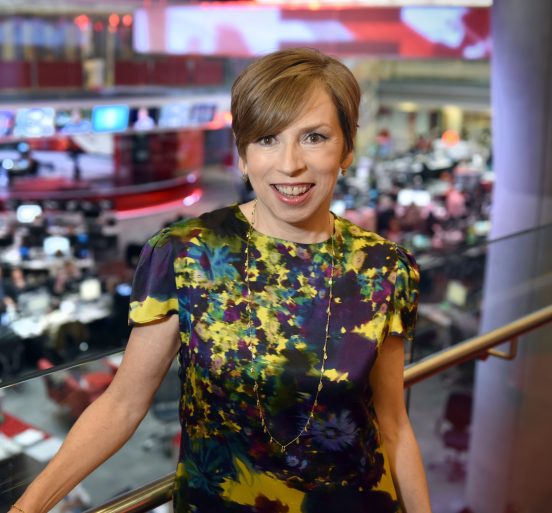
Fran Unsworth
Director of News and Current Affairs, BBC and PMA and EBU Board Member
“More than anything, we need newsroom leaders who are ready to reflect a broad range of thinking, who don’t always go down the same narrow, well-trodden path because it is the one they have always followed.
But if we don’t analyse the dangers these cultural issues pose to public service broadcasters and think them through, we may look up and see to our surprise that the hands of that clock we watch all day are pointing at one minute to midnight.”
READ MORE: After the pandemic – news in the 2020s (BBC Media Centre)
These words are taken from the BBC Lecture that Fran delivered at the Prix Italia in September 2020. Here she explained the need for public media newsrooms to refine their key values, particularly at a time when audiences were – and are – in need of reliable and timely information.
As head of news for the UK’s public broadcaster, Fran is responsible for making often difficult editorial and managerial decisions to ensure that the BBC maintains its high standards of journalism. Prior to this, she was head of the BBC’s World Service Group, demonstrating her knowledge of international media and her ability to manage projects on a global scale. She is Director of the BBC News Board and has been a member of the PMA Board since 2016.
Sally-Ann Wilson
CEO, Public Media Alliance
“Most countries have a national broadcaster and many of these are ‘Public Broadcasters’. These media organisations are accountable, not to governments or commercial interests, but to the public. But to earn this name, their news and information must be accurate, impartial, verified and most importantly of all, INDEPENDENT.
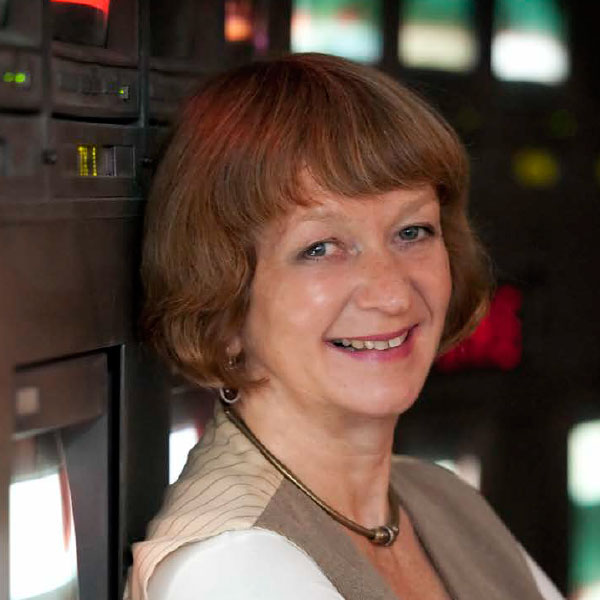
[Sally-Ann’s opening remarks at PMA’s ‘Why Public Media Matters’ session at the World Press Freedom Conference 2020]
WATCH: Why Public Media Matters, UNESCO
While Sally-Ann has enjoyed a long career in producing and directing radio and TV documentaries for the BBC and independent sector, and held senior roles in broadcast management, she appreciates how only more recently women have been appointed to senior roles across the broadcast industry. She was one of three female producers while working in the BBC’s Natural History Unit in 1987.
Sally-Ann is passionate about the importance of public media in society. She has written several academic papers on the topic, received an honorary doctorate for Services to International Broadcasting from the University of Bedfordshire, and founded the Master’s Programme in Media and International Development at the University of East Anglia (UEA), where the PMA offices are now based. From here, she manages a small team that monitors issues related to public media on a daily basis and provides support and advocacy to more than 100 PSM members across 54 countries.